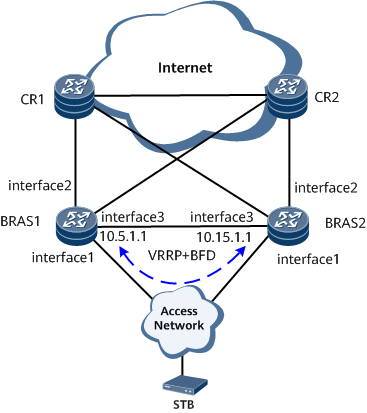|
|
Okay, so I need to figure out what Cisco Systems Tokenized Stock is. Let me start by breaking down the terms here. Cisco Systems is a well-known company that makes networking hardware and software. Stock usually refers to shares of that company, which people buy and sell on stock exchanges. Now, tokenized stock... I've heard about tokens in the context of cryptocurrencies and blockchain, but how does that relate to regular stocks?
Maybe tokenized stock means that instead of traditional shares, Cisco's stock is represented as tokens on a blockchain. That could make trading more efficient or accessible. I remember reading that tokenization can reduce settlement times and lower costs. But how exactly does that work? Do investors hold these tokens in a digital wallet instead of a brokerage account?

Wait, but Cisco is a public company, so their stock is already traded on NASDAQ. So tokenized stock might be a way to represent those existing shares using blockchain technology. Maybe it's part of a security token offering (STO) or something similar. STOs are like tokenized versions of securities, allowing them to be traded more freely across borders and on digital platforms.
But I should check if Cisco has actually done this. Let me think... I recall that some companies are experimenting with tokenizing their shares. For example, in 2021, there were reports about tokenized stocks from companies like Tesla, though I'm not sure if that's official. Cisco might be following a similar path. If they tokenize their stock, investors could trade tokens on decentralized exchanges or through platforms that support blockchain-based securities.
Another angle: tokenization could involve using a blockchain to track ownership. Each token represents a specific share, and the blockchain records transfers in real-time. This could make the process of buying and selling shares faster and more transparent. Traditional stock trading can take days to settle, but blockchain can do it in minutes. That's a benefit.
However, there are challenges. Regulatory issues come to mind. The SEC in the US has strict rules about securities, and tokenizing them might require approval. Cisco would need to navigate that, possibly through a partnership with a regulated entity. Also, tax implications and compliance with financial regulations would be important.
There's also the aspect of accessibility. If Cisco's stock is tokenized, maybe it's easier for international investors to participate without dealing with local restrictions. But would that affect the liquidity of the stock? If more people can trade it, maybe liquidity increases, but there might be volatility issues.
I should also consider the technology involved. Which blockchain are they using? Ethereum is popular for security tokens, but there are others like Solana or Tezos. The choice of blockchain would impact transaction speed, cost, and security. Also, how are the tokens backed? They need to be backed by actual shares, so there's a need for a custodian or a trusted third party to hold the physical shares behind the tokens.
Another thought: tokenization might be part of a broader trend towards decentralized finance (DeFi). If Cisco's stock is tokenized on a DeFi platform, investors could potentially earn interest by staking the tokens or use them in various DeFi applications. But again, regulatory hurdles would be significant here.
I wonder if Cisco has made any official announcements about tokenizing their stock. Let me try to recall. I think in 2020, Cisco mentioned something about blockchain initiatives, but not specifically tokenized stock. Maybe they're exploring it but haven't launched yet. Or perhaps they have a pilot program. Without official information, it's hard to say for sure.
In summary, Cisco Systems Tokenized Stock would likely be a blockchain-based representation of their traditional shares, offering benefits like faster settlement and easier cross-border trading. However, regulatory compliance, technology choices, and market adoption are critical factors that would determine its success. Investors should be cautious and verify Cisco's official stance and any partnerships involved.
Cisco Systems Tokenized Stock refers to the potential representation of Cisco's shares using blockchain technology, where each share is tokenized into digital assets on a blockchain. Here's a structured overview:
Key Concepts:
Tokenization:
Shares are converted into digital tokens, often on a blockchain, enabling more efficient trading, reduced settlement times, and lower costs.
Tokens can be traded on decentralized exchanges (DEXs) or integrated into platforms supporting blockchain-based securities.
Security Token Offering (STO):
A regulatory framework for issuing tokenized securities, which might allow Cisco to expand investor reach, particularly internationally, while complying with securities laws.
Benefits:
Speed & Efficiency: Instant settlement compared to traditional T+2 settlement.
Accessibility: Easier participation for global investors, bypassing some local restrictions.
Transparency: Immutable records of ownership via blockchain.
Challenges:
Regulatory Compliance: Requires approval from agencies like the SEC, necessitating partnerships with regulated entities.
Custody & Backing: Tokens must be backed by actual shares, requiring secure custodians.
Market Adoption: Success depends on investor trust and platform integration.
Technology Considerations:
Blockchain Platform: Likely Ethereum (for security tokens) or others like Solana for cost/speed.
Smart Contracts: Automate ownership transfers and compliance checks.
Cisco's Current Status:
As of now, Cisco hasn't officially launched tokenized stock, though it has explored blockchain in other areas (e.g., supply chain). Any initiative would require significant regulatory navigation and market validation.
Risks & Considerations:
Volatility: Tokenized securities might experience higher price swings.
Tax Implications: Investors must handle reporting for tokenized holdings.
Regulatory Risks: Ongoing legal frameworks for tokenized stocks are evolving.
Conclusion:
Cisco Tokenized Stock, if implemented, would mark a significant step in blending traditional securities with blockchain, offering enhanced liquidity and accessibility. However, regulatory hurdles, technological infrastructure, and investor adoption are critical success factors. Investors should monitor Cisco's official announcements and regulatory filings for updates.
|
|